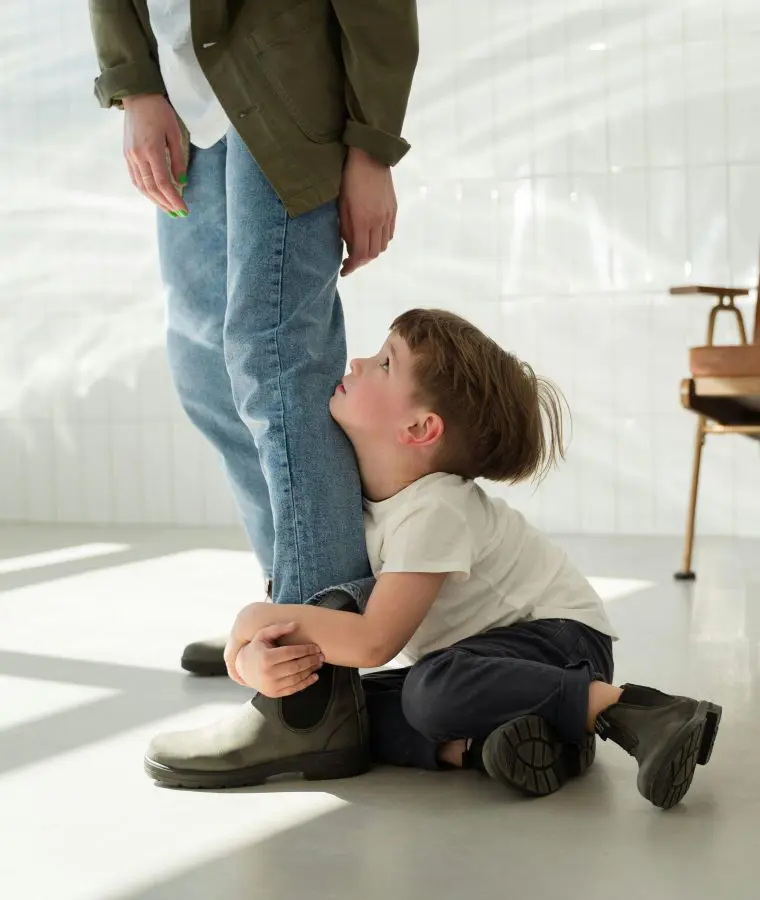When Do Babies Start Talking? Baby's First Words
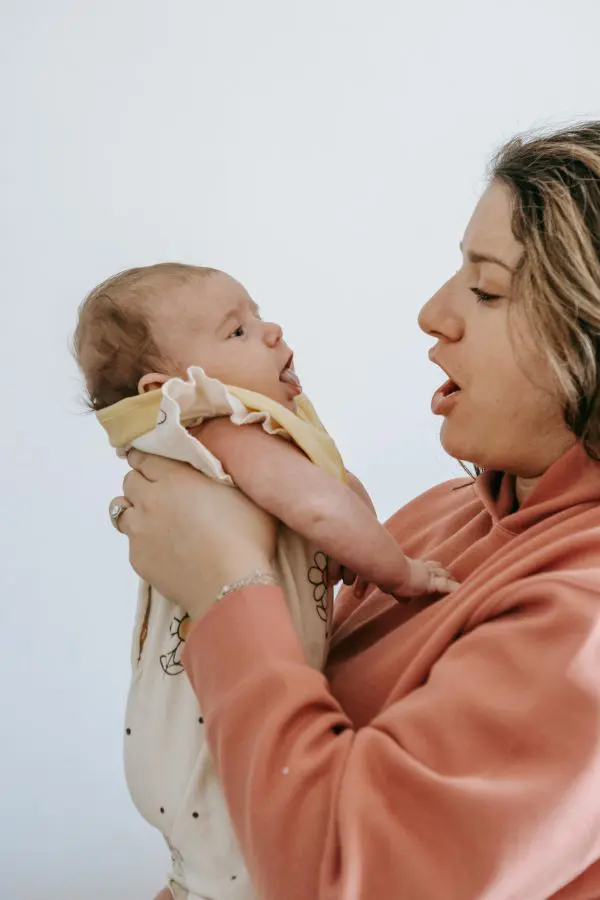
Every step of parenthood is a gratifying moment with thousands of indelible experiences, in a similar way, one of the most expected milestones is surely the moment when a baby initiates their first words. This gorgeous moment manifests a leap in communication and marks a remarkable development stage in your child's life.
This article examines the starting points of baby speech development with probable language growth patterns and strategies to boost toddler speech expression.
Understanding Baby Language Development Stages
Baby language development follows a gradual skateboard which starts during birth and then continues across the early childhood years. Every child develops at personal rates but there are general milestones that most babies reach within certain ranges. And the knowledge of these developmental stages is crucial, as it can assist caregivers and parents in delivering appropriate support for their child's communication development.
1. Early Communication: Birth to 3 Months

From the moment they are born, babies communicate through cries, coo, and facial expressions. In the first three months of life, infants begin to develop their communication skills significantly. This period is crucial as babies start to express their needs and interact with their caregivers through various sounds and gestures. Here's a detailed look at the key milestones in early communication during this phase.
-
Cooing
Around 2 months, babies typically begin to produce cooing sounds. These soft vowel sounds, such as "ooh" and "aah" are often associated with feelings of contentment and happiness. Cooing marks an essential step in language development, as it showcases the baby's ability to experiment with their local vocal cords and produce sounds beyond crying. For instance, when a baby is relaxed and comfortable, you might hear them cooing during playtime or while being held.
-
Responding to Voices
From birth, infants are attuned to their environment, particularly to human voices. By around 1 month, babies can recognize familiar voices even from another room. As they reach, 2 to 3 months, they begin to actively respond to these voices by turning their heads toward the sound source. This behavior indicates that they are not only listening but also beginning to understand that sounds have meanings and are linked to people they recognize.
-
Making Eye Contact
Eye contact is another vital aspect of early communication. From birth, infants are naturally drawn to faces and will often gaze into the eyes of their caregivers. By 3 months, making eye contact becomes more intentional; babies will look directly at faces during interactions.
2. Babbling Phase: 4 to 7 Months
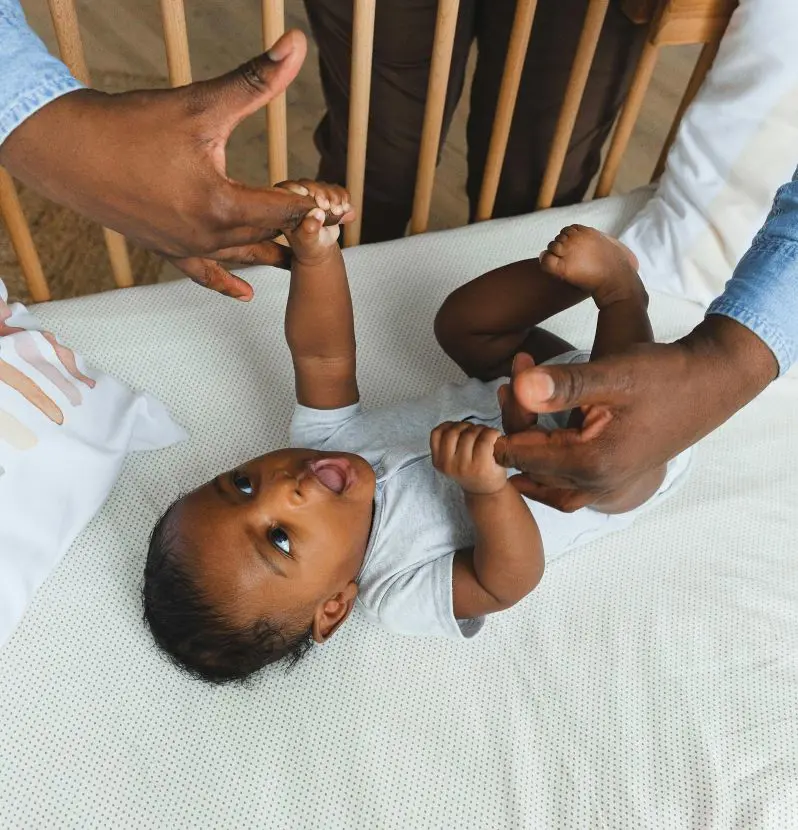
As babies grow, they enter the babbling stage, typically occurring between 4 to 6 months. Babies combine consonants and vowels, creating repetitive sounds which we have mentioned below. This stage is critical for developing speech muscles and practicing intonation. During this period, you might notice:
- Repetitive Sounds: Babies begin to produce consonant-vowel combinations like "ma-ma" or "da-da". This babbling is an essential precursor to actual speech.
- Experimentation with Sounds: They will laugh, squeal, and play with different vocalizations, exploring the sounds they can make.
3. First Words Stage: 8 to 14 Months
Around 7 to 12 months, babies start to combine sounds more rhythmically and may even state like they are having conversations. Key developments during this stage include:
- First Words: Many babies will say their first recognizable words around their birthdays. Common first words include "mama," "dada," or names of familiar objects or pets.
- Single Words: Early speech is usually limited to single words used to convey entire ideas, known as "holophrases." For example, saying "bottle" might mean "I want my bottle."
- Understanding Context: Babies begin to understand simple words and phrases in context. For example, they might wave when someone says "bye-bye."
4. Two-Word Phrases (18-24 Months)

Between 18-24 months, toddlers start combining two words, such as "more juice" or "dada come." This stage marks the beginning of sentence formation.
5. Sentence Formation
By age 2-3, children's vocabulary expands rapidly, and they begin forming simple sentences. Grammar skills also start developing during this period.
Note: On average, most babies say their first words between 12 to 18 months. However, some may start as early as 9 months or as late as 15 months. It's essential to remember that each child is unique and may develop at different rates.
Factors Influencing Language Development

As we mentioned, every baby is unique, and several factors can influence the timeline of language development, such as:
- Exposure to Language: Babies who are frequently spoken to and engaged in conversation tend to develop language skills more quickly.
- Bilingual Environments: Children exposed to multiple languages may babble in ways consistent with both languages before settling into one.
- Individual Differences: Some children may be naturally more verbal than others or may take longer due to personality traits.
- Genetics: Family history plays a significant role. If parents or siblings were early talkers, the baby might follow suit.
- Environment: A language-rich environment, where parents and caregivers talk, sing, and read to the baby enables faster language development. Likewise, always talk with the baby while feeding, for instance, "Open your mouth," or "Let's have some apple."
Encouraging Your Baby's Language Skills
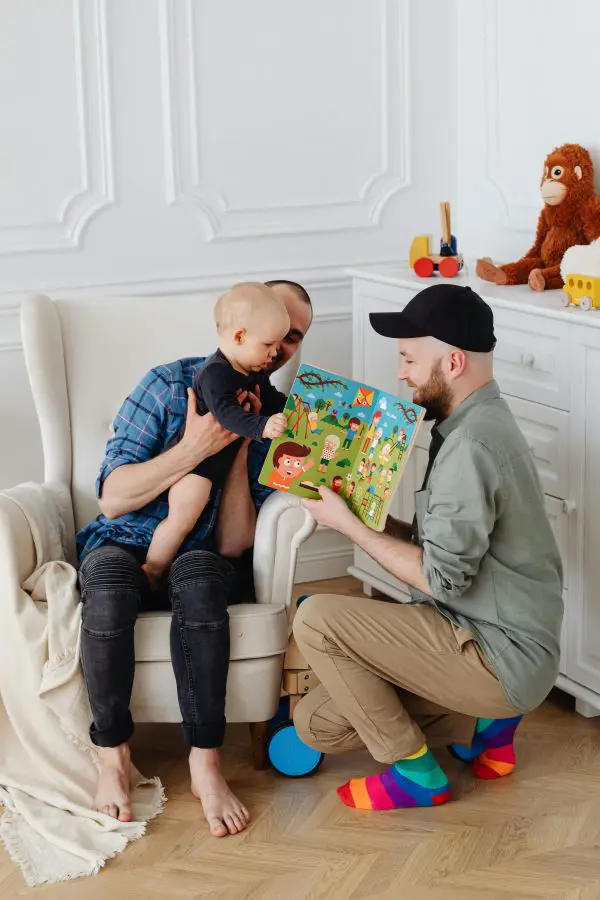
As a parent or caregiver, there are several strategies you can use to encourage your baby's language development:
1. Engage in "Baby Talk"
Using simple language and a singsong tone- often referred to as "parentese" can be beneficial. This style of speaking captures your baby's attention and helps them learn the rhythms of language.
2. Responding to Babbling
When your baby babbles, respond enthusiastically. Repeat back what they say and add real words that relate to their sounds. For example: If your baby says "ta-ta," respond with "Yes! That's your toys!"
3. Read Together
Reading books aloud is one of the best ways to expose your baby to new vocabulary and concepts. Choose colorful picture books and engage with them by asking questions about the images.
4. Use Gestures
Incorporating gestures such as waving or pointing can help reinforce language concepts. For instance, when saying "bye-bye," wave your hand while saying the word.
5. Encourage Social Interaction
Playdates with other children or interaction with family members can provide opportunities for your baby to hear different voices and styles of speech.
6. Limit Screen Time
Excessive screen time can hinder language development. Instead, prioritize interactive activities and face-to-face interactions.
What Factors Affect Your Baby's Ability to Talk?
In some cases, your baby's language development is delayed if your baby has certain medical issues or diagnoses, such as:
- Autism Spectrum Disorder (ASD)
The developmental disorder known as ASD causes communication and social interaction hurdles and behavioral problems. Children diagnosed with autism often develop speech and language at a slower pace and some autistic children remain totally without language abilities. Children with communication limitations may struggle to interpret social signs while their ability to use language along with their skill to maintain two-way dialogue remains impaired. For this, parents can initiate speech therapy treatments at an early stage since this leads to a substantial enhancement of literacy outcomes in affected children.
- Cerebral Palsy
The group of disabilities known as cerebral palsy causes movement and muscular control disturbances because of brain damage which typically develops during the pregnancy or birth period. CP affects children's ability to control their mouth for speaking so they experience challenges pronouncing words correctly. Because of this individuals struggle to create clear words or sounds, treatment programs like speech therapy teach children some techniques that enable them to develop effective communication methods despite their physical limitations.
- Down Syndrome
As a genetic disorder, Down Syndrome develops when a person has an extra chromosome 21, which causes intellectual disabilities and developmental delays. Children with Down syndrome often face challenges in both expressive and receptive language skills. Their speech may be slower to develop due to factors like muscle tone issues affecting articulation. Early intervention and tailored speech therapy can aid in improving their language abilities.
- Hearing Impairment
Hearing loss is one of the most significant risk factors for language delay. Babies who can not hear well may struggle to learn language naturally, as they miss auditory input which is crucial for developing communication skills. Even mild hearing impairment can affect speech development if not addressed early. Regular hearing assessments and interventions, such as hearing aids or cochlear implants can help mitigate these effects.
When To Consult A Professional
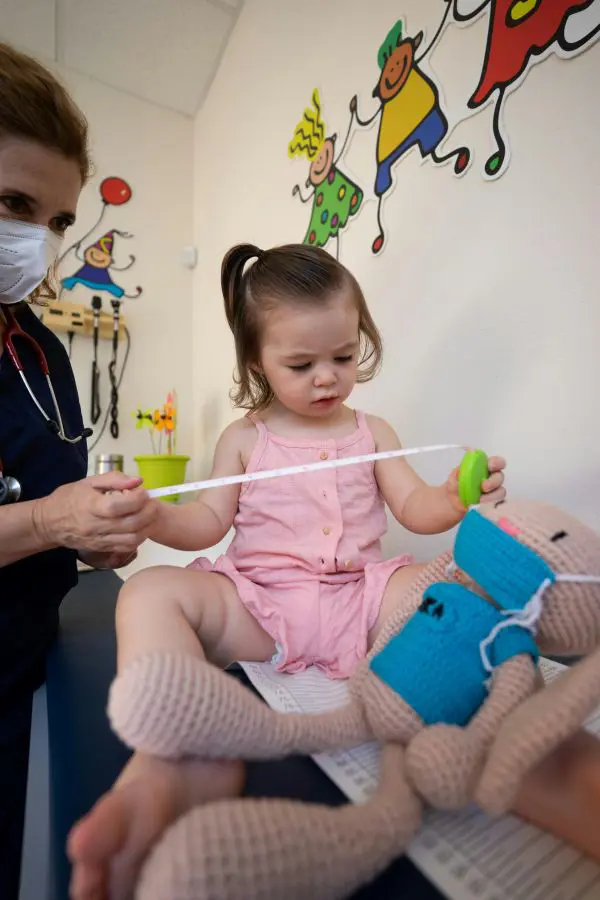
While there is children's own pace of development when it comes to language growth, however, certain signs may indicate a need for further evaluation:
- By 12 months, if your baby has not said any words.
- By 18 months, if they do not use at least six words.
- By 24 months, doesn't combine two words or has a vocabulary of fewer than 50 words.
- At any age, shows signs of hearing problems or loses previously acquired language skills.
If you have concerns about your child's speech development, consulting with a pediatrician or a speech-language pathologist can guide you according to your child's needs.
The Science Behind Baby Talk
Neurologically, language development is a complex process involving:
1. Brain neural network formation
The brain establishes its first language networks during the process of neural network development. Before any language exposure infants possess fundamental language substrates within their left brain hemisphere that expand in complexity as they hear spoken language. Speech production and interpretation require two important brain regions Broca's and Wernicke's areas, which work together as part of the language processing network.
2. Auditory Processing
Language acquisition requires effective auditory processing because infants need to detect different sounds. Newborns possess special abilities to detect phonemes because they allow infants to develop core knowledge of their native speech. As infants develop older their capabilities to process language begin decreasing thus demonstrating why early language exposure is essential.
3. Motor Skill Development
The development of motor proficiency standards significantly supports the creation of speech. The connection between Broca's area and the motor cortex facilitates the physical aspects of speaking, such as articulation and pronunciation. As infants develop their motor abilities they become better able to create words and communicate effectively.
4. Cognitive Understanding
Cognitive understanding encompasses the mental processes involved in learning and using language. As babies interact with their environment and caregivers, they begin to associate words with meanings and concepts. This cognitive engagement is essential for developing vocabulary and comprehension skills that will support more complex language use later on.
Interesting Neurological Facts:
- Babies are born with approximately 100 billion brain neurons
- Language centers develop rapidly in the first three years
- Consistent interaction accelerates neural connections





